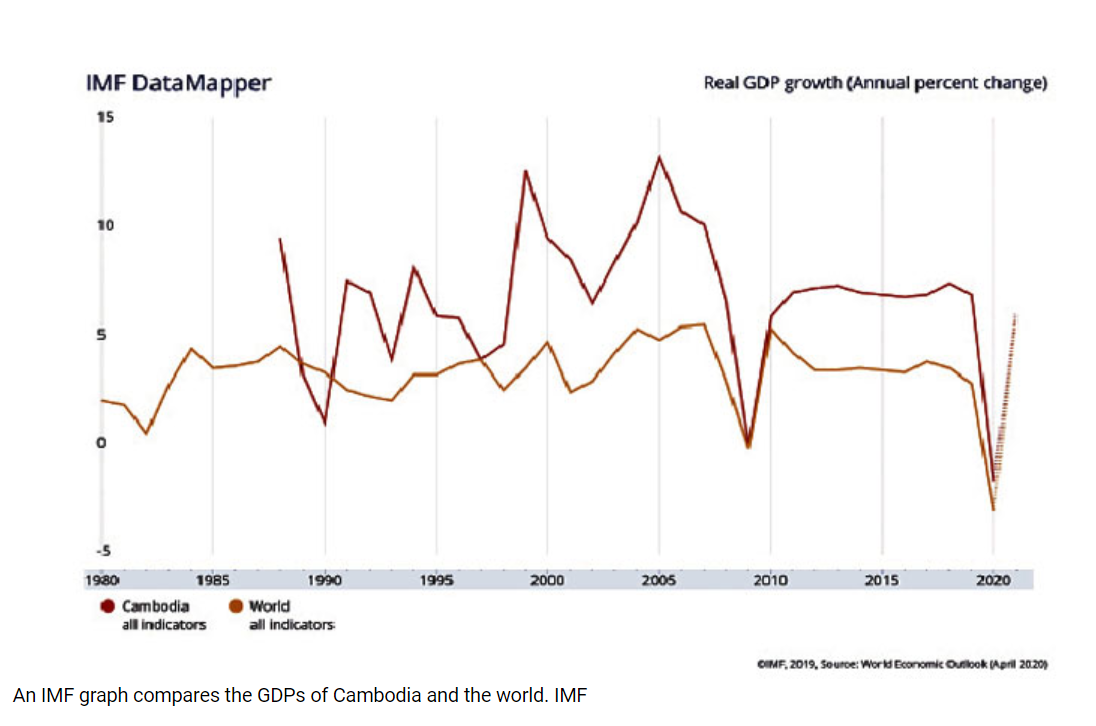Cambodia: Economy to contract for the first time since conflict ended
The International Monetary Fund (IMF) has predicted Cambodia’s 2020 Gross Domestic Product will contract by -1.7 percent this year in line with a global contraction of -3.0 percent. The reduction in GDP represents an economic downturn the world has not seen since the Great Depression, caused by extreme COVID-19 quarantine measures.
If the prediction is realised, it will be the first time the Kingdom’s economy has contracted since the IMF began recording the Cambodian economy in 1988, following the instability caused by the Khmer Rouge conflict.
On a positive note, once an affordable and widely available vaccine is produced, with many expecting this to occur in the late second half of the year, there should be a strong economic rebound for both Cambodia and the world, predicted at 6.1 percent and 5.8 percent respectively.
The report, titled The Great Lockdown, was released yesterday and outlined that the economic shock of COVID-19 will be “much worse” than that of the 2008-09 financial crisis when Cambodia narrowly avoided a shrunken economy, recording a growth of just 0.1 percent.
“The health crisis is having a severe impact on economic activity. As a result of the pandemic, the global economy is projected to contract sharply… much worse than during the 2008–09 financial crisis,” the report read.
The IMF has also outlined a growing chorus of economists that are calling for governments to save their financial war chests for after the lockdown.
“Broad-based fiscal stimulus can pre-empt a steeper decline in confidence, lift aggregate demand and avert an even deeper downturn. But it would most likely be more effective once the outbreak fades and people are able to move about freely,” it stated
Since peace was restored in 1998, Cambodia has achieved remarkably high economic growth performance at an average of eight percent per annum. In addition, there has been a significant reduction in poverty rates, from 53 percent in 2004 to just 10 percent in 2019. In tandem, education and healthcare sectors have improved remarkably.
However, according to a World Bank report, around 4.5 million people remain near-poor, vulnerable to falling back into poverty when exposed to economic and other external shocks, such as the pandemic.
To mitigate the economic shock of the health crisis, the government has announced a $2 billion reserve budget to help the Kingdom’s economic pillars, including agriculture and banking and also helping unemployment in the garment and tourism sector. The central bank has also eased liquidity for the banking sector.
Source: https://www.khmertimeskh.com/50713591/economy-to-contract-for-the-first-time-since-conflict-ended/


 English
English




